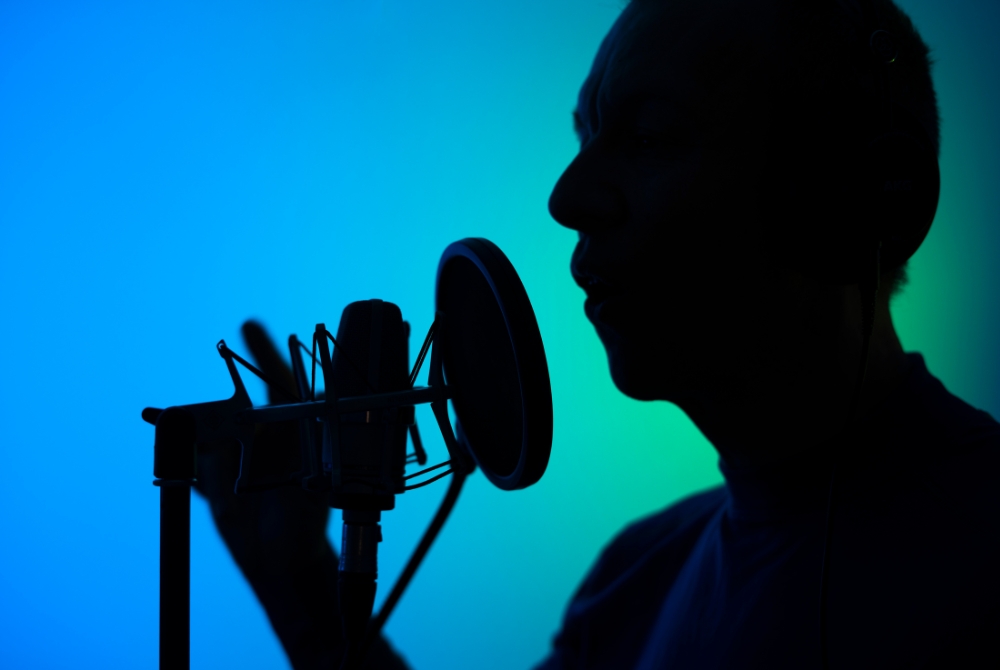Some may know British singer Rick Astley from his performance of 1987 hit song “Never Gonna Give You Up.” Or from the song’s internet phenomenon resurgence in 2007, rising to one billion views on YouTube by 2021. However, in January of this year, Astley and the famed song became newsworthy once again when he sued rapper Matthew Huari, known as “Yung Gravy,” over a soundalike song – alleging that Gravy’s 2022 breakout hit “Betty (Get Money)” illegally impersonated Astley’s voice.
Specifically, Astley’s complaint alleges Gravy violated his right of publicity when producer and defendant Nick Seeley (P/K/A “Popnick”) imitated Astley’s “signature voice.” The argument relies heavily on a 1988 case centered on Better Midler’s voice.
This case highlights a tension between Astley’s right of publicity claim and a potential defense under the First Amendment and Copyright law.
Music and Its Intellectual Property – Generally
First, recorded music has two potential distinct copyrights:
- One for the underlying composition (i.e., the lyrical/musical arrangement of the song)
- The second for the actual sound recording as performed by the recording artist
Here, Primary Wave – the music management and publishing organization who approached Gravy about creating a song based on this Astley sample – owns the publishing rights to “Never Gonna Give You Up.” Gravy agreed to work on it, and his record label obtained the copyright license to use the underlying musical composition—i.e., the appropriate license to recreate the distinct melody and lyrics from “Never Gonna Give You Up”—but not the actual sound recording.
Astley does not own the rights to either the composition or the sound recording. The complaint alleges instead “they resorted to theft of Mr. Astley’s voice without a license and without agreement.”
The Copyright Act § 114(b) Would Permit a “Soundalike” Song
Second, there is a distinction between sampling and interpolation. Sampling involves piecing together an existing sound recording with an underlying composition—a license to use both the composition and the sound recording is typically required. Interpolation, on the other hand, is when an artist takes an existing composition and incorporates it into a new work.
Under § 114(b) of the Copyright Act, interpolation in music is permitted without permission from the copyright owner. And the House Judiciary Committee Notes on this section of the Act affirm that “mere imitation of a recorded performance” is not enough to infringe.
Here, Astley does not sue for copyright infringement. Rather, he claims: When Popnick imitated Astley’s voice, he violated California’s right of publicity law, which protects the unauthorized use of an individual’s name, image, likeness, voice, and other attributes of the person’s identity.
The Interplay Between Copyright Act § 114(b) and the Right of Publicity
In one notable example, Midler v. Ford Motor Co. (1988)1, the Ninth Circuit held that California’s common law right to publicity can be violated “when a distinctive voice of a professional singer is widely known and is deliberately imitated in order to sell a product.”
There, Ford Motor Co. licensed the musical composition of “Do You Want to Dance” to use in an advertisement to sell the Mercury Sable. But Midler’s representatives refused to license the sound recording of her voice in the song. Ford hired one of Midler’s backup singers, Ula Hedwig, and told her to “sound as much as possible like the Bette Midler record.”
The Ninth Circuit held Midler could not state a claim under California’s right of publicity statute, but they did permit her to pursue her claim under California common law, which more broadly protects against the misappropriation of a person’s identity, including vocal performances.
The First Amendment: Commercial vs. Expressive
Right of publicity laws prohibit unlicensed commercial use of one’s name, image, and likeness. The difference between Astley’s case and Midler’s case is that Astley’s voice was used in an expressive and artistic manner.
Through his complaint, Astley’s lawyers attempt to expand the doctrine to encompass the reproduction and distribution of Astley’s voice in an expressive work – in this case, Yung Gravy’s song.
Copyright Preemption
Another issue raised is whether states are permitted to use right of publicity laws to prohibit soundalikes, even though the federal Copyright Act expressly allows them.
As a case in point, in 2020 rapper 50 Cent tried to sue rapper Rick Ross over publicity rights for sampling his song “In Da Club”2 when 50 Cent did not own the copyright for the song – and therefore could not sue for copyright infringement. The U.S. Court of Appeals for the Second Circuit held that the federal Copyright Act preempted a state right of publicity claim when the latter is merely a “thinly disguised effort to exert control over an unauthorized [use of a copyrighted] work.”
In Astley’s case, because of how the copyright ownership of his material has been arranged, it may also warrant federal copyright law preemption of his state right of publicity claim.
Impact
A ruling in Astley’s favor would effectively award a monopoly to the first performer of a song, even if, as in Astley’s case, the singer did not write the song or own the underlying composition’s copyright. anyone who performs a cover song — a veritable soundalike song — would face legal risk if their voices sounded too similar to the first singer—or any other singer who had previously performed that song—even if they complied with federal law.
At the very least, the holdings of former cases should be limited to right of publicity cases involving a commercial use, as opposed to a claim seeking to prevent dissemination of an expressive work—such as a song. A holding otherwise may effectively halt the recent trend of nostalgic pop interpolations.
This case is still pending in Los Angeles Superior Court: Astley v. Hauri, Cal. Super. Ct., No. 23SMCV00351.
- Midler v. Ford Motor Co., 849 F.2d 460 (9th Cir. 1988).
- Jackson v. Roberts, Case No. 19-480 (2d Cir. Aug. 19, 2020) (Leval, J.).
This post was written by guest author Julianna Favale.
